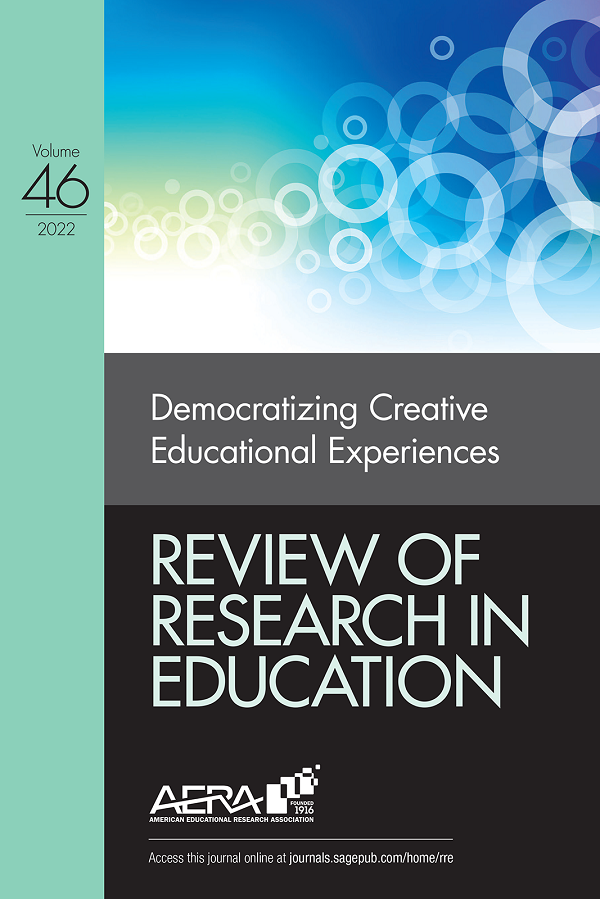支持学生跨年级、跨学科理解的教学实践:概念回顾
IF 2.4
1区 教育学
Q1 EDUCATION & EDUCATIONAL RESEARCH
引用次数: 29
摘要
意义创造需要在世界中保持积极、自觉、有动机和有目的。它是一种始终处于文化和历史背景下的活动,在这种背景下,我们与他人互动,并借助工具。在本章中,我们将日常意义构建与学术意义构建进行对比,并以学科特定的方式对待学术意义构建,探索教师如何让学生参与数学、科学、历史和文学领域的学术意义构建。与本卷的重点一致,旨在以教师实践为特色,本章的目标是探索教师参与的实践,当目的是将学生定位为意义制定者,并创造一种课堂文化,提供资源和背景,以发展学术意义制定者的技能。我们的分析揭示了广泛的实践范围,以表征旨在教授和促进意义建构的教学制定的特征,以及这些实践所服务的众多目的。为了阐明教师实践的特定领域性质,我们分析了一些研究,其中研究者提供了有关教师实践的重要细节。我们得出结论,意义建构是研究和描述优秀教学的有效视角。本文章由计算机程序翻译,如有差异,请以英文原文为准。
Teaching Practices That Support Student Sensemaking Across Grades and Disciplines: A Conceptual Review
Sensemaking entails being active, self-conscious, motivated, and purposeful in the world. It is an activity that is always situated within the cultural and historical contexts in which we interact with others and with the aid of tools. In this chapter, we contrast everyday sensemaking with academic sensemaking and treat academic sensemaking in a disciplinary-specific manner, exploring how teachers engage students in academic sensemaking within the domains of mathematics, science, history, and literature. Consistent with the focus of this volume, which is designed to feature teacher practice, the goal of our chapter is to explore the practices in which teachers engage when the purpose is to position students as sensemakers and create a classroom culture that provides the resources and contexts to develop skill with academic sensemaking. Our analyses revealed the broad range of practices necessary to characterize the enactment of instruction that is designed to teach and promote sensemaking, as well as the multitude of purposes those practices served. To explicate the domain-specific nature of teacher practice, we analyzed selected studies in which the researchers provided significant detail regarding teachers’ practices. We conclude that sensemaking is a productive lens for investigating and characterizing great teaching.
求助全文
通过发布文献求助,成功后即可免费获取论文全文。
去求助
来源期刊

Review of Research in Education
EDUCATION & EDUCATIONAL RESEARCH-
CiteScore
15.70
自引率
0.00%
发文量
14
期刊介绍:
Review of Research in Education (RRE), published annually since 1973 (approximately 416 pp./volume year), provides an overview and descriptive analysis of selected topics of relevant research literature through critical and synthesizing essays. Articles are usually solicited for specific RRE issues. There may also be calls for papers. RRE promotes discussion and controversy about research problems in addition to pulling together and summarizing the work in a field.
 求助内容:
求助内容: 应助结果提醒方式:
应助结果提醒方式:


